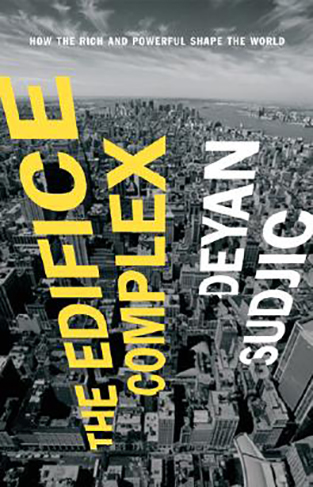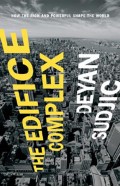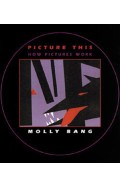- Home
- Books
- Sale
- Book Bazaar RP Up To 60% Off
- The Edifice Complex - How the Rich and Powerful Shape the World
The Edifice Complex - How the Rich and Powerful Shape the World
By: Deyan Sudjic
-
Rs 640.00
- Rs 800.00
- 20%
You save Rs 160.00.
Due to constant currency fluctuation, prices are subject to change with or without notice.
We're offering a high discount on this book as it is slightly damaged
From one of the world's premier architecture critics, a groundbreaking dissection of how the colossal egos of the powerful and wealthy determine what actually gets built--of the real reasons why we build.
Architecture critics most often write about buildings as a form of art, promulgating an "auteur theory" of architecture that focuses on the dazzling brilliance of the big names, such as Rem Koolhaas and Frank Gehry, and underplaying the role of the wealthy and powerful in forcing the architects' hands. Deyan Sudjic puts forth a boldly contrarian view. Architecture must be understood as an expression of power and as a weapon, or form of propaganda, that is used in ways both subtle and grandiose as a means of achieving and maintaining power--of carving a legacy out of glass, steel, and stone.
While most architecture books focus on a certain building or a specific architect, "The Edifice Complex" takes a wide-angle look at a fascinating range of buildings and large-scale building schemes--both the impressively effective and the disastrously ill conceived. In a lively and wonderfully accessible narrative style, Sudjic takes readers behind the scenes of the stories of the great political manipulators of architecture in the twentieth century, from the great dictators of fascism--Hitler, Mussolini, and Stalin--and their megalomaniacal plans for rebuilding Berlin, Rome, and Moscow, to power-broker businessmen such as Nelson Rockefeller; and from the "theme park" propaganda of the presidential libraries to the vainglorious symbolism of Saddam Hussein's Mother of All Battles Mosque. While some leaders have used architecture as a means of consolidating control over a nation, others have employed architecture to shape a new national identity, as Ataturk did to a large degree of success in Turkey and the shahs attempted and failed to do in Iran.
But what of the architects? Sudjic also examines the role they play in lending their talents to these efforts, from those who have all too willingly aided and abetted, such as Albert Speer, to those who have courted the powerful while remaining true to their art, such as Mies van der Rohe.
"The Edifice Complex" offers a brilliant reinterpretation of the role of buildings in our lives and of the age-old question why we build.
We're offering a high discount on this book as it is slightly damaged
From one of the world's premier architecture critics, a groundbreaking dissection of how the colossal egos of the powerful and wealthy determine what actually gets built--of the real reasons why we build.
Architecture critics most often write about buildings as a form of art, promulgating an "auteur theory" of architecture that focuses on the dazzling brilliance of the big names, such as Rem Koolhaas and Frank Gehry, and underplaying the role of the wealthy and powerful in forcing the architects' hands. Deyan Sudjic puts forth a boldly contrarian view. Architecture must be understood as an expression of power and as a weapon, or form of propaganda, that is used in ways both subtle and grandiose as a means of achieving and maintaining power--of carving a legacy out of glass, steel, and stone.
While most architecture books focus on a certain building or a specific architect, "The Edifice Complex" takes a wide-angle look at a fascinating range of buildings and large-scale building schemes--both the impressively effective and the disastrously ill conceived. In a lively and wonderfully accessible narrative style, Sudjic takes readers behind the scenes of the stories of the great political manipulators of architecture in the twentieth century, from the great dictators of fascism--Hitler, Mussolini, and Stalin--and their megalomaniacal plans for rebuilding Berlin, Rome, and Moscow, to power-broker businessmen such as Nelson Rockefeller; and from the "theme park" propaganda of the presidential libraries to the vainglorious symbolism of Saddam Hussein's Mother of All Battles Mosque. While some leaders have used architecture as a means of consolidating control over a nation, others have employed architecture to shape a new national identity, as Ataturk did to a large degree of success in Turkey and the shahs attempted and failed to do in Iran.
But what of the architects? Sudjic also examines the role they play in lending their talents to these efforts, from those who have all too willingly aided and abetted, such as Albert Speer, to those who have courted the powerful while remaining true to their art, such as Mies van der Rohe.
"The Edifice Complex" offers a brilliant reinterpretation of the role of buildings in our lives and of the age-old question why we build.
The Edifice Complex - How the Rich and Powerful Shape the World
By: Deyan Sudjic
Rs 640.00 Rs 800.00 Ex Tax :Rs 640.00
Zubin Mehta: A Musical Journey (An Authorized Biography)
By: VOID - Bakhtiar K. Dadabhoy
Rs 840.00 Rs 1,050.00 Ex Tax :Rs 840.00
American Spartans: The U.S. Marines: A Combat History from Iwo Jima to Iraq
By: James A. Warren
Rs 990.00 Ex Tax :Rs 990.00
The Origins of Political Order From Prehuman Times to the French RevolutioN
By: Francis Fukuyama
Rs 4,495.00 Ex Tax :Rs 4,495.00
Manning Up: How the Rise of Women Has Turned Men into Boys
By: Kay Hymowitz
Rs 995.00 Ex Tax :Rs 995.00
The Obama Syndrome: Surrender At Home War Abroad
By: Tariq Ali
Rs 1,036.00 Rs 1,295.00 Ex Tax :Rs 1,036.00
The Quest For Meaning: Developing A Philosophy Of Pluralism
By: Tariq Ramadan
Rs 1,116.00 Rs 1,395.00 Ex Tax :Rs 1,116.00
The Pakistan US Conundrum Jihadists The Military And The People The Struggle For Control
By: Yunas Samad
Rs 1,116.00 Rs 1,395.00 Ex Tax :Rs 1,116.00
An Enemy We Created: The Myth Of The Taliban Al Qaeda Merger In Afghanistan 19702010
By: Alex Strick van Linschoten
Rs 5,250.00 Ex Tax :Rs 5,250.00
WikiLeaks: Inside Julian Assanges War on Secrecy
By: David Leigh & Luke Harding
Rs 850.00 Ex Tax :Rs 850.00
American Spartans: The U.S. Marines: A Combat History from Iwo Jima to Iraq
By: James A. Warren
Rs 990.00 Ex Tax :Rs 990.00
No recently viewed books available at the moment.
Zubin Mehta: A Musical Journey (An Authorized Biography)
By: VOID - Bakhtiar K. Dadabhoy
Rs 840.00 Rs 1,050.00 Ex Tax :Rs 840.00
The Edifice Complex - How the Rich and Powerful Shape the World
By: Deyan Sudjic
Rs 640.00 Rs 800.00 Ex Tax :Rs 640.00
American Spartans: The U.S. Marines: A Combat History from Iwo Jima to Iraq
By: James A. Warren
Rs 990.00 Ex Tax :Rs 990.00














-120x187.jpg?q6)









-120x187.jpg?q6)



-120x187.jpg?q6)



